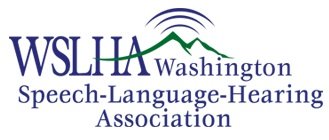Cost: $369.00/person
CEU Credits Offered: 1.4
About the Course:
Challenges with infants and children demonstrating complex swallowing and feeding disorders are addressed in a holistic evidence-based framework that considers interrelating systems. Populations range from newborn infants in the Neonatal Intensive Care Unit (NICU) through children in school based & rehabilitation settings. Problem solving/intervention will be addressed through lecture, videos, and case analyses. Functional outcomes are emphasized through targeted intervention strategies based on sensorimotor learning principles and consideration of neural plasticity. Problem areas include airway (e.g., laryngomalacia, laryngeal cleft, vocal fold paralysis, tracheostomy/ventilator); GI tract (e.g., gastroesophageal reflux, eosinophilic esophagitis); nutrition/hydration; advancing feeding in NICU and beyond to include tongue & lip tie; tube feeding & weaning; barriers to oral feeding & intervention strategies with; picky/finicky eaters. Discussions will include the urgent need for specific measurable outcomes and pros/cons for varied frequency and intensity of direct and indirect interventions/therapies.
Learning Objectives:
Apply knowledge of airway deficits for management decisions with infants and children who demonstrate oropharyngeal dysphagia
Identify barriers to successful oral feeding (e.g., nutrition, GI tract, and neurologic conditions)
Describe primary factors necessary as foundation to advance oral feeding with infants in NICU and parents actively involved
Demonstrate strategies for advancing oral feeding with tube feeding
Implement intervention strategies for picky eaters with a range of sensory and behavior-based principles
Determine strategies to measure intervention/treatment outcomes by time, frequency, and intensity.
Audience:
Professionals involved in feeding and swallowing assessment and intervention in infants and children, to include speech-language pathologists, occupational therapists, occupational therapist assistants, physical therapists, physical therapist assistants, dietitians, psychologists, nurses, physicians, and social workers.
Age and Patient Populations:
Infants through school age children with a wide range of etiologies for feeding and swallowing problems.



